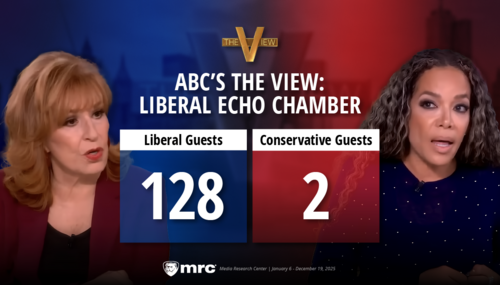 In the frenzied mania to cleanse America of its supposed "racist past," one progressive sports writer is demonizing the man who brought Jackie Robinson into major league baseball. Not even the long-dead Branch Rickey is spared from this maddening purge. In a story by Washington Post columnist Kevin Blackistone that grinds gears with believability, the legendary general manager of the Brooklyn Dodgers is being compared to Houston Texans' owner Bob McNair.
In the frenzied mania to cleanse America of its supposed "racist past," one progressive sports writer is demonizing the man who brought Jackie Robinson into major league baseball. Not even the long-dead Branch Rickey is spared from this maddening purge. In a story by Washington Post columnist Kevin Blackistone that grinds gears with believability, the legendary general manager of the Brooklyn Dodgers is being compared to Houston Texans' owner Bob McNair.
McNair garnered the ire of race baiters for a complaint that protesting NFL players are the "inmates running the prison." Most of the players on his team kneeled in protest of him during the national anthem in yesterday's game at Seattle. McNair's racial transgressions are the latest in a long line of whites marginaling black athletes, in Blackistone's reasoning:
Demonization of black athletes, such as referring to them as “inmates” in a “prison” as McNair did, wasn’t the most critical issue raised by McNair’s quote, but it was helpful to the process of convincing the public that it is in its best interest, too, for those who run sports to somehow contain their athletes. After all, it plays on the fear of black men misbehaving that we in the media, the sports media in particular, continue to perpetuate.
 To Blackistone, McNair is continuing a long tradition of powerful white men controlling black athletes. In 1945, Rickey focused on "Afro-Cuban" shortstop Silvio Garcia as a prime candidate for breaking pro sports' race barrier. That idea quickly fizzled when Garcia told Rickey he would kill any white players who belittled him with racial insults. Rickey was looking for someone like Robinson, who could endure the ugliness by turning the other cheek. Blackistone isn't buying that narrative:
To Blackistone, McNair is continuing a long tradition of powerful white men controlling black athletes. In 1945, Rickey focused on "Afro-Cuban" shortstop Silvio Garcia as a prime candidate for breaking pro sports' race barrier. That idea quickly fizzled when Garcia told Rickey he would kill any white players who belittled him with racial insults. Rickey was looking for someone like Robinson, who could endure the ugliness by turning the other cheek. Blackistone isn't buying that narrative:
Garcia threatened to be a black athlete neither Rickey nor his sport could control. Control of black athletic talent in this country was then, before and now — as Houston Texans owner Bob McNair reminded not once but twice over the past few days — of paramount concern to ownership and management. There was, for example, the concerted effort of white lawmakers to wrest the heavyweight championship of the world over a century ago from boxer Jack Johnson, the first black man to hold it, to restore the fallacy of white superiority.
Blackistone also alleges that, in the 1970s, when the NCAA reduced athletic scholarships from four years to one it was done to reduce "the power of new stars, primarily of color, from managing their destinies." When in 2005, then NBA Commissioner David Stern imposed a dress code on predominantly African American players it was done "to rebut an increasingly urban image that Stern was worried might have made it less marketable to advertisers and white fans."
Now the "upper echelon of the NFL" is guilty of a "conspiratorial defrocking of Kaepernick." This wasn't about the flag, Blackistone would have us believe. It was about "corralling the players and returning them to their place."
Blackistone cited University of Missouri journalism professor Cynthia Frisby whose 2015 study of sports coverage revealed more stories are written about crime involving black athletes than are written than about crime involving white athletes. More than 70 percent of stories about athletes and domestic and sexual violence were about blacks and just 18 percent about whites. Could this data merely be a statistical reflection of realities? Blackistone wasn't interested enough to address this aspect of the issue. He added his own Wake Forest Journal of Law & Policy statement that black athletes are “portrayed more as deviant, drug abusers, violent, women beaters, and menaces to society.”
Not finished yet with his diatribe, Blackistone wrote:
In short, McNair’s couching of black players as deviants was yet another weapon, like the rhetorical wielding that protests during the anthem “disrespect the troops,” to stop a legitimate protest that bled from the streets into our games.
Like Silvio Garcia, these black NFL athletes are threatening to be a lot neither McNair nor his brethren can control.
The sports reports of this fall football season portray just the opposite. Free from the control of team owners and coaches, pro football players are left to freely do as they please on game days. Not a single player has been disciplined for kneeling, raising a fist or speaking his mind. Despite Blackistone's protestations, the sky is not falling on today's super wealthy, completely free black athletes.




